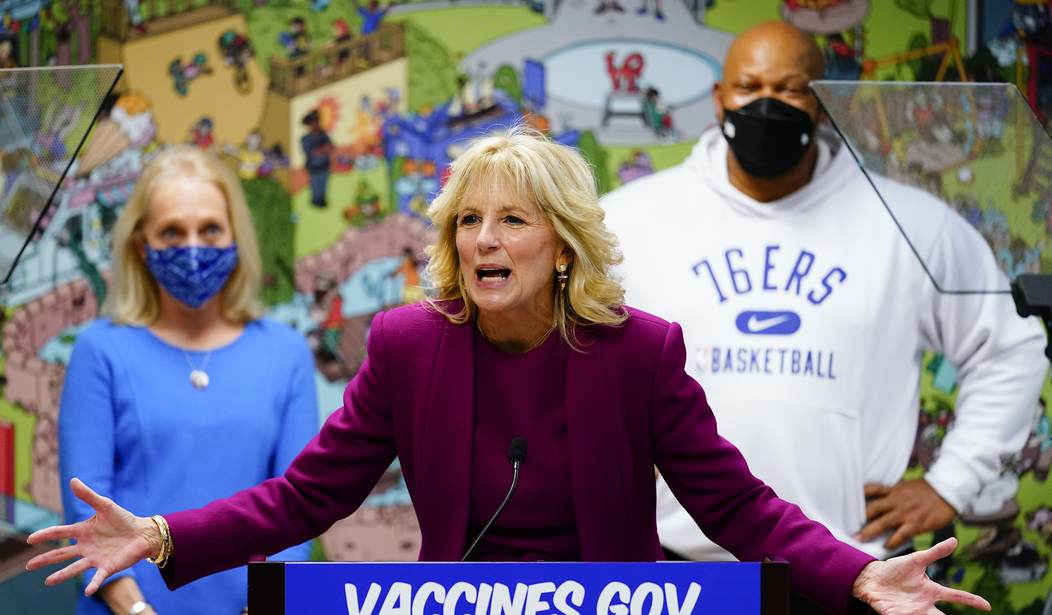Yesterday, the Boston Globe published one of its periodic reminders that everyone should still be afraid because COVID is still out there and it’s still killing people. But citing a new study from Boston University’s School of Public Health, there has been a demographic shift in COVID deaths across Massachusetts over the past year. During the surge in Omicron variant infections at the beginning of 2022, Black and Hispanic patients were dying at rates higher than white patients. Now, however, white people in the Bay State are dying from the ‘Rona at measurably higher rates than minorities. So how did that happen?
A year ago, young families of color in Massachusetts were suffering a heavy toll from COVID-19, with Black and Latino people in the prime of their lives dying at rates up to three times higher than white people.
Now, the pendulum appears to be swinging the other way.
Since the end of the first Omicron wave last March, death disparities have reversed, with white people in Massachusetts more likely to die from COVID than Black or Hispanic people, although there is some variation across age groups, according to a new analysis conducted for the Globe by researchers at Boston University’s School of Public Health.
You might be wondering why we need to be tracking COVID deaths based on skin color, but shut up, racist. In all seriousness, though, the study does raise some interesting questions. Last March, Hispanic patients were 1.5 times more likely to die from COVID than white patients, while Black patients were 1.3 times more likely to pass away. That’s a small, but statistically meaningful difference. Curiously, COVID deaths among Asian patients were far lower than any other category over the entire course of the pandemic.
In recent months, however, the numbers have flipped. The COVID death rate among Black patients is just two-thirds that of white patients. Hispanic patients are dying at three-quarters the rate of whites. To my knowledge, there has never been a single study suggesting that there is some inherent, genetic difference between the races making one more or less likely to die from the disease, so something else must be going on. The virus did not suddenly sign up for some sort of cultural awareness program.
One hint may be found in the overall rate that people were dying. There were roughly 4,100 COVID deaths in Massachusetts last year. But more than half of those deaths (55%) took place in just January and February. The death rate slowed significantly after that. But how does that affect the racial disparity?
One possible answer might be found in the fact that people living in economically disadvantaged areas tend to have less access to good quality health care. Sadly, that applies disproportionately to Black and Hispanic communities, so perhaps that led to more deaths. But if that were the case, why did it change so much over the next nine months? Those communities of color didn’t suddenly become vastly more wealthy.
That question is no doubt a lot harder to quantify, but there are some clues available. The new vaccines were already widely available (and largely mandatory) by the beginning of last year. But it was widely reported that vaccine hesitancy was significantly higher in Black communities than in the rest of the population. As we now know, the mRNA vaccines did not prevent anyone from catching or spreading the disease as we were regularly told in the beginning. But they did make most patients less likely to either die or require an ICU bed.
So if vaccine-hesitant Black residents were dying more quickly initially in 2022, they could have accounted for more deaths. But at the same time, Omicron was sweeping through all communities regardless of race. And the vast majority of the Black residents who caught it survived and obviously went forward with natural immunity. (Which we now know is at least as good as if not better than vaccine immunity.)
I know the CDC still recoils at the sound of anyone using the phrase but did Black Massachusetts residents simply build up a better level of herd immunity than other communities and thereby see their death rates plummet? We may never be able to answer the question with complete certainty, but it sounds as good as anything else I’ve heard.








Join the conversation as a VIP Member